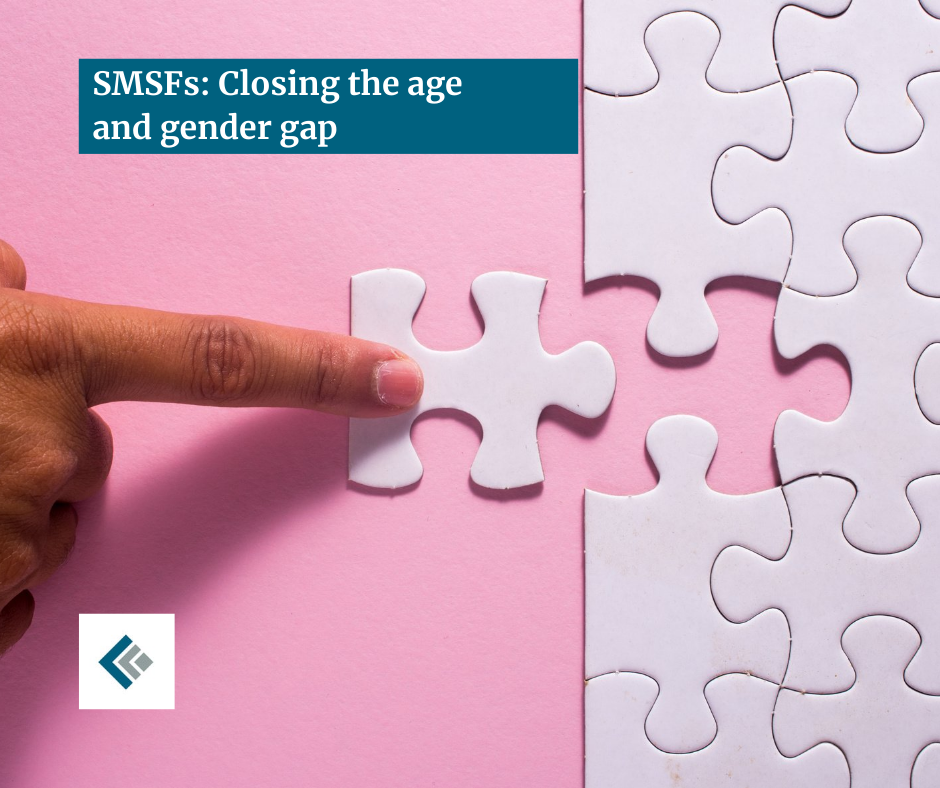
Buying insurance through superannuation has many advantages – but you need to make sure you are getting the right cover for your individual needs.

Buying insurance through superannuation has many advantages – but you need to make sure you are getting the right cover for your individual needs.

A recent ATO report showed Australians under the age of 45 now make up around 47% of all new SMSF trustees. So what’s driving younger people to SMSFs?

Investment scams reported to Scamwatch have cost Australians over $70 million in the first half of this year, more than the total losses reported to Scamwatch for all of 2020…

Treasurer Josh Frydenberg says rising confidence and a further unexpected drop in the unemployment rate are another sign there will be a strong economic recovery when virus lockdowns come to an end.

Spring has finally arrived and it’s the perfect time to refresh, reset and declutter your finances.

Financial protection for your loved ones when you die
Sudden death can place financial stress on those who depend on you. If this happens, life cover can help them pay the bills and other living expenses.
What is life cover?
Life cover is also called ‘term life insurance’ or ‘death cover’. It pays a lump sum amount of money when you die. The money goes to the people you nominate as beneficiaries on the policy. If you haven’t named a beneficiary, the super trustee or your estate decides where the money goes.
Life cover may also come with terminal illness cover. This pays a lump sum if you’re diagnosed with a terminal illness with a limited life expectancy.
Accidental death insurance is different from life cover. It will only payout if you die from an accident. It will not provide cover if you die from an illness, disease or suicide. This type of cover often has a lot of exclusions.
To understand what’s covered under a policy and the exclusions, read the Product Disclosure Statement (PDS).
Decide if you need life cover
If you have a partner or dependents, life insurance can help repay debt and cover living costs if you die.
If you don’t have a partner or people who depend on you financially, you may not need life cover. But consider getting trauma insurance, income protection insurance or total and permanent disability (TPD) insurance in case you get sick or injured.
How much life cover you might need?
To decide how much life cover to get, consider how much money you or your family would:
The difference between these is the amount of cover you should get.
Use our Life insurance calculator
Work out if you need life insurance and how much cover you might need.
If you need help deciding if you need life cover, reach out to the Sherlock Wealth team for assistance here.
How to buy life cover
Check if you already hold life insurance through super. Most super funds offer default life cover that’s cheaper than buying it directly. You can increase your level of cover through your super fund if you need to.
You can also buy life cover from:
Life cover can be bought on its own or packaged with trauma, TPD or income protection insurance. If it’s packaged, your life cover may be reduced by any amount paid on other claims in the package. Check the PDS or ask your insurer.
Before buying, renewing or switching insurance, check if the policy will cover you for claims associated with COVID-19.
Life cover premiums
You can generally choose to pay for life cover with either:
Your choice of stepped or level premiums has a large impact on how much your premiums will cost now and in the future.
Compare life cover.
Once you know how much life cover you need, shop around, and compare:
A cheaper policy may have more exclusions, or it may become more expensive in the future. You can find information about the policy on the insurer’s website or in the Product Disclosure Statement (PDS).
Use our Life insurance claims comparison tool
Compare how long it takes different insurers to pay a life cover claim and the percentage of claims they pay out.
What you need to tell your insurer
You need to tell your insurer anything that could affect their decision to insure you. You need to give them this information when you apply, renew or change your level of cover.
Insurers usually ask for information about your:
If an insurer doesn’t ask for your medical history, it may mean that the policy has more exclusions.
The information you provide will help the insurer to decide:
It is important that you answer the questions honestly. Providing misleading answers could lead an insurer to deny a claim you make.
Making a life cover claim
If someone close to you dies and you need to make a claim, or if you need to make a terminal illness claim, see how to make a life insurance claim.
If you would like help reviewing or selecting appropriate life insurance cover, please reach out to the Sherlock Wealth team here to help you look at what’s right for you.
Source: MoneySmart
(ASIC)

The recent sharp rise in bond rates may not be a big topic of conversation around the Sunday barbecue, but it has set pulses racing on financial markets amid talk of inflation and what that might mean for investors.
US 10-year government bond yields touched 1.61 per cent in early March after starting the year at 0.9 per cent.i Australian 10-year bonds followed suit, jumping from 0.97 per cent at the start of the year to a recent high of 1.81 per cent.ii
That may not seem like much, but to bond watchers it’s significant. Rates have since settled a little lower, but the market is still jittery.
Bond yields have been rising due to concerns that global economic growth, and inflation, may bounce back faster and higher than previously expected.
While a return to more ‘normal’ business activity after the pandemic is a good thing, there are fears that massive government stimulus and central bank bond-buying programs may reinflate national economies too quickly.
Despite short-term interest rates languishing close to zero, a sharp rise in long-term interest rates indicates investors are readjusting their expectations of future inflation. Australia’s inflation rate currently sits at 0.9 per cent, half the long bond yield.
To quash inflation fears, Reserve Bank of Australia (RBA) Governor Philip Lowe recently repeated his intention to keep interest rates low until 2024. The RBA cut official rates to a record low of 0.1 per cent last year and launched a $200 billion program to buy government bonds with the aim of keeping yields on these bonds at record lows.iii
Governor Lowe said inflation (currently 0.9 per cent) would not be anywhere near the RBA’s target of between 2 and 3 per cent until annual wages growth rises above 3 per cent from 1.4 per cent now. This would require unemployment to fall closer to 4 per cent from the current 6.4 per cent.
In other words, there’s some arm wrestling going on between central banks and the market over whose view of inflation and interest rates will prevail, with no clear winner.
Bond prices have been falling because investors are concerned that rising inflation will erode the value of the yields on their existing bond holdings, so they sell.
For income investors, falling bond prices could mean capital losses as the value of their existing bond holdings is eroded by rising rates, but healthier income in future.
The prospect of higher interest rates also has implications for other investments.
In recent years, low-interest rates have sent investors flocking to shares for their dividend yields and capital growth. In 2020, US shares led the charge with the tech-heavy Nasdaq index up 43.6%.iv
It’s these high growth stocks that are most sensitive to rate change. As the debate over inflation raged, the so-called FAANG stocks – Facebook, Amazon, Apple, Netflix and Google – fell nearly 17 per cent from mid to late February and remain volatile.v
That doesn’t mean all shares are vulnerable. Instead, market analysts expect a shift to ‘value’ stocks. These include traditional industrial companies and banks which were sold off during the pandemic but stand to gain from economic recovery.
Against expectations, the Australian residential property market has also performed strongly despite the pandemic, fuelled by low-interest rates.
National housing values rose 4 per cent in the year to February, while total returns including rental yields rose 7.6 per cent. But averages hide a patchy performance, with Darwin leading the pack (up 13.8 per cent) and Melbourne dragging up the rear (down 1.3 per cent).vi
There are concerns that ultra-low interest rates risk fuelling a house price bubble and worsening housing affordability. In answer to these fears, Governor Lowe said he was prepared to tighten lending standards quickly if the market gets out of hand.
Only time will tell who wins the tussle between those who think inflation is a threat and those who think it’s under control. As always, patient investors with a well-diversified portfolio are best placed to weather any short-term market fluctuations.
If you would like to discuss your overall investment strategy, please reach out to the Sherlock Wealth team here to help look at what’s right for you.
i Trading economics, viewed 11 March 2021, https://tradingeconomics.com/united-states/government-bond-yield
ii Trading economics, viewed 11 March 2021, https://tradingeconomics.com/australia/government-bond-yield
iii https://www.reuters.com/article/us-oecd-economy-idUSKBN2B112G
v https://rba.gov.au/speeches/2021/sp-gov-2021-03-10.html
vi https://www.washingtonpost.com/business/2020/12/31/stock-market-record-2020/
vii https://www.corelogic.com.au/sites/default/files/2021-03/210301_CoreLogic_HVI.pdf

While all Australians have been affected in some way by the global pandemic, women have borne the brunt of its impacts. Here are why – and some tips of what women can do to recover financially.

In this checklist, we highlight some key questions you should be considering when assessing your personal finances

The principle of ‘salary sacrificing’ may not sound very appealing. After all, who in their right mind would voluntarily give up their hard-earned cash. But it can have real financial benefits for some in terms of reducing your taxable income, which could see you pay less at tax time.
As we nudge ever closer to the end of the financial year, it’s worth taking a look at salary sacrificing to see if it’s a worthwhile strategy to put into place for you.
A salary sacrifice arrangement is also commonly referred to as salary packaging or total remuneration packaging. In essence, a salary sacrifice arrangement is when you agree to receive less income before tax, in return for your employer providing you with benefits of similar value. You’re basically using your pre-tax salary to buy something you would normally purchase with your after-tax pay.
The main benefit of salary sacrificing is that it reduces your pre-tax income, and therefore the amount of tax you must pay. For example, if you’re on a $100,000 income, you may agree to only receive $75,000 as income in return for a $25,000 car as a benefit.
Doing this would reduce your taxable income to $75,000 which could lower your tax bill because you’re essentially earning less as far as the tax office is concerned.*
This arrangement must be set up in advance with your employer before you commence the work that you’ll be paid for and it’s advisable that the details of the agreement are outlined in writing.
According to the Australian Tax Office (ATO), there’s no restriction on the types of benefits you can sacrifice, as long as the benefits form part of your remuneration. What you can salary sacrifice may also depend on what your employer offers.
The types of benefits provided in a salary sacrifice arrangement include fringe benefits, exempt benefits and superannuation.
Fringe benefits can include:
Your employer pays fringe benefit tax (FBT) on these benefits.
Exempt benefits include work-related items such as:
Your employer typically does not have to pay fringe benefits tax on these.
You can also ask your employer to pay part of your pre-tax salary into your superannuation account. This is on top of the contributions your employer is already paying you under the Superannuation Guarantee, which should be no less than 9.5% of your gross (before tax) annual salary, though this may rise in the near future.
Salary sacrificed super contributions are classified as employer super contributions rather than employee contributions. These contributions are called concessional contributions and are taxed at 15 per cent. For most people, this will be lower than their marginal tax rate.
There is a limit as to how much extra you can contribute to your super per year at the 15 per cent tax rate. The combined total of your employer and any salary sacrificed concessional contributions cannot exceed $25,000 in a single financial year. If you exceed the cap, you could be charged additional tax on any excess salary sacrifice contributions.
Most employers allow employees to salary sacrifice in super, but not all employers will allow salary sacrificing for other benefits.
Salary sacrifice is generally most effective for middle to high-income earners, while there is little to no tax saving for people who are already in a low tax bracket.
If you are a middle to high-income earner, then it may be worth considering salary sacrifice to reduce your taxable income and to take advantage of some of those benefits.
Before you do, make sure you talk to us so we can help ensure it is an appropriate strategy for your circumstances.
*Note: This example illustrates how salary sacrifice arrangements can work and does not constitute advice. You should not act solely on the information in this example.
Source for all information in this article: https://www.ato.gov.au/General/Fringe-benefits-tax-(FBT)/Salary-sacrifice-arrangements/